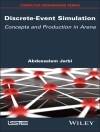This book addresses the issue of cognitive semantics’ aspects that cannot be represented by traditional digital and logical means. The problem of creating cognitive semantics can be resolved in an indirect way. The electromagnetic waves, quantum fields, beam of light, chaos control, relativistic theory, cosmic string recognition, category theory, group theory, and so on can be used for this aim. Since the term artificial intelligence (AI) appeared, various versions of logic have been created; many heuristics for neural networks deep learning have been made; new nature-like algorithms have been suggested. At the same time, the initial digital, logical, and neural network principles of representation of knowledge in AI systems have not changed a lot. The researches of these aspects of cognitive semantics of AI are based on the author’s convergent methodology, which provides the necessary conditions for purposeful and sustainable convergence of decision-making.
Содержание
History of Knowledge.- Philosophy of Knowledge.- Nonlogic Thought.- Hidden Consciousness.- Formalized Semantics.- Cosmomicrophysical Thinking.- Nonlocal Brainstorming.- Purposeful Creativity.- Cognitive Structures.- Quantum Semantics.- Optical Semantics.- Wave of Consciousness.- Entanglement of Thought.- Thought Event.- Thought Boosts.- Purposeful Chaos.- Dissipative Thought.- Purposefulness of Thought.- Small Impacts.- Light Thought.- Quantization of Thought.- Thought Interferometry.- Architecture of AI Semantics.- Applications.
Об авторе
Dr. Alexander Raikov is Leading Researcher of the Institute of Control Sciences of Russian Academy of Sciences, Doctor of technical sciences, State Advisor of the Russian Federation of the 3rd class, Winner of the Russian government award in the field of science and technology, Professor of the MIREA – Russian Technological University, and Head of the artificial intelligence department of the National Center for Digital Economy of the Lomonosov Moscow State University. In 1992–1999, he is Chief of the analytical technology department of Russian President Administration. His scientific and business interests are in AI and decision support systems in social and human organization, and strategic management. He published 7 books and 450 papers in periodical journals and proceedings of conferences in different scientific domains. He focuses on the advantages and risks of strong AI.












